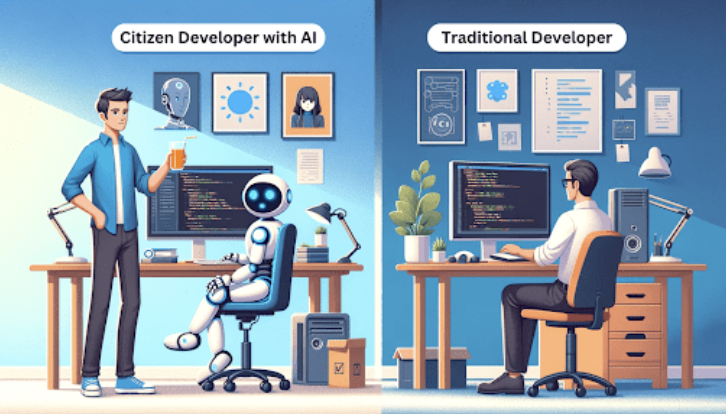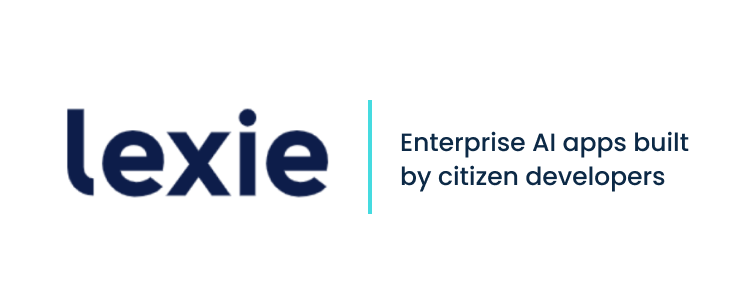Natural Language Code Revolution - AI Leading the Way for Citizen Developers
In 2017, Jensen Huan, CEO of NVIDIA, stirred up the tech world with his statement about “AI eating the software.” In recent years, AI code generation has gained significant traction, with OpenAI’s custom GPTs leading the way. This technological leap has sparked a debate between two extremes: some believe it’s “game over” for traditional software development, while others see AI as suitable only for simple tasks. At Lexie, we take a more nuanced view, recognizing the transformative potential of AI in programming while acknowledging its current limitations.

The Nuanced View
Rather than prematurely declaring the end of traditional software development or dismissing AI’s capabilities, we believe we are witnessing a paradigm shift in programming. This shift, which we consider more significant than previous technological revolutions like personal computers, the internet, mobile, or cloud computing, introduces a new era of “citizen developers.”
Citizen developers do not require expertise in standard programming languages. Instead, they excel in:
- Understanding Customer Pain Points: They have a knack for comprehending the pain points of customers and discerning their preferred mechanisms for resolving those issues.
- Specifying Software Requirements: Citizen developers are adept at specifying software requirements using natural language, wireframes, flowcharts, or a combination of these methods.
- Breaking Down Complex Problems: They excel at breaking down intricate problems into modular agents that collaborate seamlessly to accomplish complex tasks.
- Leverage existing software libraries: Citizen developers can harness the vast array of existing software components using natural language invocation and parameterization.
- Establishing Guardrails and Checks: They specialize in specifying guardrails, checks, and balances to ensure that these agents align precisely with the specified workflow.

Challenges and Opportunities
This paradigm shift presents significant opportunities for individuals who deeply understand specific industries and workflows, regardless of their technical background. Identifying pain points and optimizing workflows remains a valuable skill.
Despite the exciting prospects, several challenges must be addressed for this technology to scale effectively:
- Alignment and Analyzability: Ensuring that all AI-driven reasoning remains transparent and safe, addressing concerns about AI decision-making.
- Data Quality: Acknowledging that the quality of AI models heavily depends on the data used for training. Addressing inaccuracies and conflicts in data to avoid poor AI decisions is crucial.
- Compensation for Domain Experts: Implementing mechanisms to fairly compensate domain experts and data providers who play a pivotal role in fueling AI systems with intelligence.
- Meta Reasoning: Establishing a self-improvement cycle of meta-reasoning over time, reducing the need for extensive human intervention while continually enhancing the system’s intelligence.

